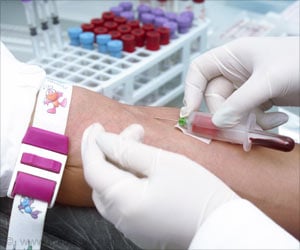An ECG and blood tests can tell us if a patient is having a heart attack. Further testing may be needed to tell if a patient faces an increased risk of heart attack.
People who arrive at the emergency department with low-risk chest pain and talk through treatment options with a physician show improved knowledge of their health status and follow-up options, compared with patients who received standard counseling from a physician.
This is according to Mayo Clinic research presented at the American College of Cardiology's 65th Annual Scientific Session. Chest pain accounts for about 8 million emergency department visits each year in the U.S., but more than 90 percent of those patients are not experiencing a heart attack, says Erik Hess, M.D., lead author and emergency medicine physician at Mayo Clinic. "An electrocardiogram and blood tests can tell us if a patient is having a heart attack. Further testing may be needed to tell us if a patient faces an increased risk of heart attack in the near future. We wanted to know if there is value in discussing this further testing with patients."
TOP INSIGHT
Patient engagement in care can be beneficial to the patient's understanding and treatment, and can lead to better care.
In the study, which involved 898 patients visiting six emergency departments in five states, half of the patients were randomly assigned to receive a physician discussion using Chest Pain Choice, the first patient-oriented tool designed to help shared decision-making between patients and physicians for chest pain. Patients were shown one-page information sheets that provide descriptions and graphics depicting a patient's specific risk, such as a 2 percent risk of having a heart attack in the next 45 days and the next steps for care.
Results showed that patients who received Chest Pain Choice increased their knowledge about their risk and options, answering 53 percent of questions on a questionnaire correctly, compared with 44.6 percent in the patients who received standard physician consultation. In addition, patients were asked to evaluate the experience of discussing their care with their physician. Of patients who received Chest Pain Choice, 68.9 percent said they would recommend the way they discussed care and options with their physicians, compared with 61.2 percent of those who received standard care.
"This trial shows that patient engagement in care can be beneficial to the patient's understanding and treatment, and can lead to better care and more efficient use of resources," Dr. Hess says, adding that Chest Pain Choice was associated with no major adverse heart events and led to a significantly lower proportion of patients receiving a stress test.
Source-Eurekalert

 MEDINDIA
MEDINDIA




 Email
Email










